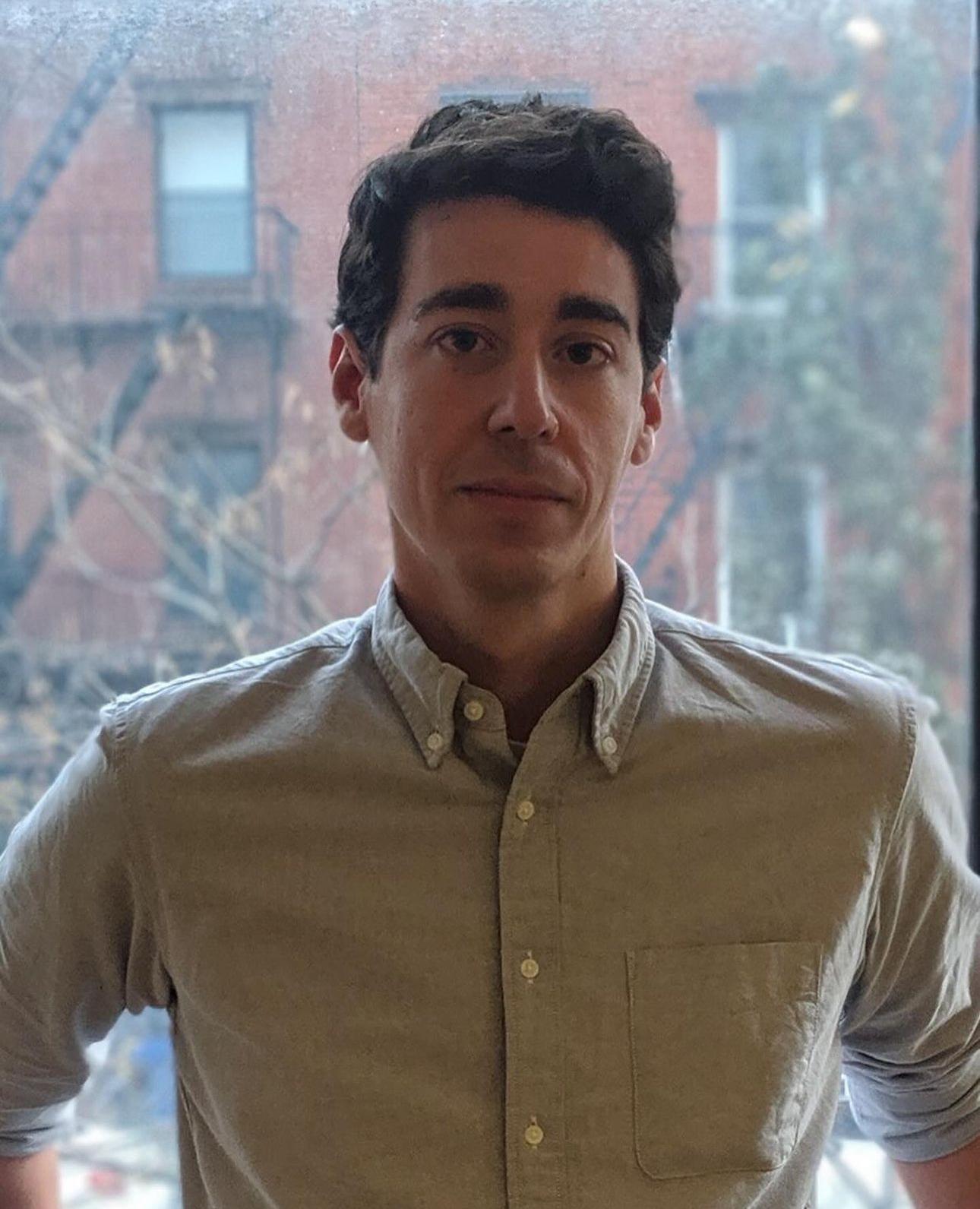Q&A: Bernardo Britto discusses influences, themes of recently released ‘Omni Loop’
Bernardo Britto poses for his portrait. “Omni Loop” marks Britto’s second feature film. (Courtesy of Gables Cinema)
By Natalie Ralston
Sept. 20, 2024 6:23 p.m.
Bernardo Britto is chasing life’s most ambitious questions through film.
The acclaimed writer and director released his second feature film, “Omni Loop,” on Friday. Featuring award-winning actresses Mary-Louise Parker as Zoya Lowe and Ayo Edebiri as Paula, the sci-fi drama finds the characters attempting to navigate time travel in the hopes of returning to the people they always wanted to be.
Dealing with themes of mortality and the pursuit of happiness, Britto spoke with the Daily Bruin’s Natalie Ralston about the film’s intended meanings and origins.
This Interview has been edited for length and clarity.
[Related: Film & Television Archive, Farhang Foundation host Iran film celebration]
Daily Bruin: Your previous short films “Yearbook” and “Hudson Geese” deal with themes of drama and mortality. How do you feel “Omni Loop” builds upon that genre or differs from your previous works?
Bernardo Britto: “Omni Loop” is the closest that I’ve gotten to dipping into real life, into having these people feel not just like characters. Even if they start off in this very sort of character-y world, it gets to a place where it is just people in a room talking to each other, and those emotions aren’t excused or hidden away by some sort of quirky thing. There’s a lot of weird things that happen in the movie, but when it comes time to feel the emotions, hopefully they feel very real and present.

DB: Your protagonist Zoya Lowe openly struggles with the pursuit of happiness and its seeming unreachability. Do you believe the state of happiness is something that can be attained with or without sacrifice?
BB: I think, if you are relying on anything outside of yourself, that you’re always going to be dissatisfied in some way. I think happiness has to come from within us, and I guess it also comes from the connections with other people, which are outside of yourself. I think regret is a part of being alive. I think we will always feel somewhat dissatisfied, and we will always wonder, “What if? Could I have done more? Could I have been better?” I think if there is a chance of happiness, it comes from finding acceptance within that.
DB: “Omni Loop” takes place in Miami, Florida, one of the places you grew up in. Why did you choose to set the story in Miami, and did you intend to bridge your personal upbringing with the narrative?
BB: I’m in every movie I make. I’m all over it in some way or another. I love having small little easter eggs for the people that know me, but the idea all came together when I was actually on the Metromover in downtown Miami while I was riding the Omni Loop, which goes around in a circle in downtown Miami. I don’t know, the movie all just came together there in Miami for me.
I also thought there’s a really beautiful poetry to the city of Miami. It’s a very new city. There weren’t a lot of people there before air conditioning because it was way too hot. But then at the same time, it’s a city that, by all predictions and prognostications, will be underwater within 50 years. So how do you hold both of those things in your head at the same time, where you’ve got no real sense of history or past and you’ve got no real future? And that seems very true of where the characters are at.
[Related: Q&A UCLA professor Patricia Rozema talks film rereleases at Hammer, artistic process]
DB: The inevitability of mortality is a recurring and prominent theme within the film, begging questions of what happens after death. What inspired you to explore how the fear of death affects the way people live their lives in the present?
BB: It’s the fear of death in my own life, not necessarily for me, but for everyone I know. I think it’s a response to that. You don’t move through the world without experiencing some sort of trauma or pain, and everyone will know loss at some point. In some ways, it is a movie about that – about grief, about acceptance.
It’s feeling those emotions in my own life and seeing it reflected in other people’s lives. It really trips me out, I can’t come to any sort of understanding about it. Whenever I have those moments of like, I feel a lot, but I don’t have an easy answer that I can wrap my head around, that’s when I’m like, “Oh, that’s what I should write about. Let me follow that feeling down and hopefully find some closure or some answer to it.”
